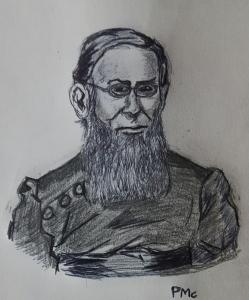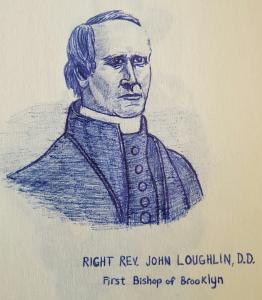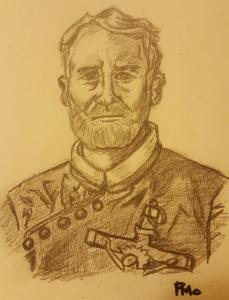![44547720_126430593381[1]](https://wp-media.patheos.com/blogs/sites/224/2013/11/44547720_1264305933811-228x300.jpg)
These are reproachful words, my brethren. Our good Saviour is indignant, because, of the ten men whom He healed of leprosy, nine forgot to return and thank Him. What a big majority—nine to one in favor of forgetting to acknowledge benefits. In any competition we naturally like to be with the majority. But in this comparison of the thankful with the thankless, we ought to be ashamed to be counted with that immense number of Christians who forget favors and ignore benefactors.
Meantime, giving thanks to God ought to be the easiest of religious duties. One may not be able to do heroic things for his Divine Master, but who cannot say Deo gratias? High, disinterested love is beyond our reach—so we think. But feelings of gratitude are natural, and this instinctive goodness, if cheap to us, is precious to Him Who is, nevertheless, the all-powerful Master of heaven, and of Whom it is said: “Every best gift and every perfect gift is from above, coming down from the Father of lights” (James 1:17). If you say that you have little virtue and even of that you are not sure, yet so you cannot say of the virtue of thanksgiving, for this you can measure out to God plentifully with a hearty Our Father, when you think of His gift of life, or you call to mind His grant of the priceless boon of His religion. O loving Redeemer, Thou hast spared me during my years of sinfulness, when death would have meant damnation, Thou didst cure me of the leprosy of vice, Thou didst lavish upon me, undeserving as I was, a multitude of Thy tender mercies! Is it not a pitiful and an ignoble thing that I do not so much as thank Thee?
Brethren, we find many Christians nowadays receiving the sacraments often enough to make saints of them. Yet they barely manage to skim along the very edge of the eternal precipice. Do you know why it happens that these souls, thus reveling in divine favors, are hardly safe from mortal sin for a single week? It is because they go to confession and communion with, indeed some preparation beforehand, but afterwards slip away with hardly five minutes of thanksgiving. We read of St. Francis Borgia that whilst a young man living in the world, he was a weekly communicant. His preparation extended from midweek till Sunday, and his thanksgiving covered the three days that followed Sunday. He did not work any miracles in that early part of his career, but he gave God His due, and he made immense progress toward heroic sanctity.
We must also look carefully to our little debts of thanksgiving, such as our prayers at meals. St. Paul exhorts us: “Whether you eat or drink, or whatsoever else you do, do all to the glory of God.” (1 Cor. 10:31) How many Christians sit down and rise up at table without any sign or word of gratitude to God, that heavenly Father Whose loving providence gives them every atom of their food, every pleasure and benefit of their appetite and their digestion. We believe that your debts to your butcher and grocer would be better paid if you paid God His debt of thanksgiving by saying your table prayers. Parents provide good food for their children and expect their gratitude, and wholly forget to teach them their prayers of gratitude to God before and after meals. They would have their family grateful to themselves, and they let them go along quite forgetful of God, the all-bountiful provider for both parents and children.
Let us but realize that everything comes from God, and we shall soon give Him at least the meager payment of our gratitude. It is a form of love that marks and then overflows the limit of mere justice. Whosoever is currently mindful of his dependence on heaven for every good thing of life, soon becomes a recollected spirit. The time surely comes when we must recognize our heavenly Father’s love even in bitter adversity. Can we do that, can we kiss the hand that smites us even unto death, if we have habitually thoughtless of His tenderest caresses?
Rev. Walter Elliot, C.S.P., Parish Sermons on Moral and Spiritual Subjects for All Sundays and Feasts of Obligation (New York: Paulist Press, 1913), 339-341.
NOTE: Walter Elliot was born in Detroit and studied at the University of Notre Dame before enlisting in the Union Army during the Civil War. After the war, he worked as a lawyer before joining the Paulist Fathers in 1868. Founded a decade earlier, the Paulists devoted (and devote) themelves to the work of evangelization, both with Catholics and non-Catholics. The sermon above was probably delivered at the Paulist motherhouse, St. Paul the Apostle in Manhattan.











